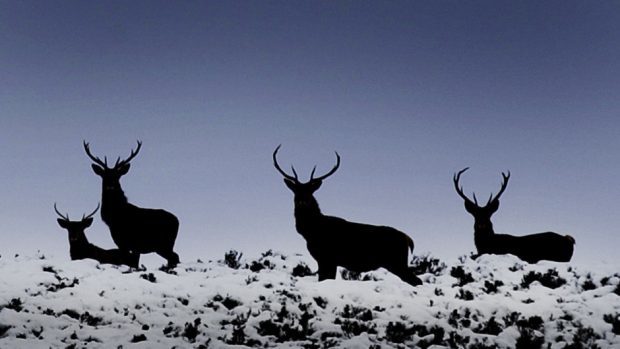A coalition of environmental charities has backed action to control deer numbers, ahead of a Holyrood debate on Tuesday.
Scottish Environment Link, RSPB Scotland, National Trust for Scotland, Ramblers Scotland, Scottish Wildlife Trust, Trees for Life, Woodland Trust Scotland and John Muir Trust have all signed up for increased control.
The group has called for the Scottish Government to move forward towards a modernised system they say will help deliver national targets on bio-diversity, climate change and woodland expansion.
They have backed the Environment Climate Change and Land Reform (ECCLR) committee report, which criticises the failure of the current system to protect important habitats because too many deer are damaging native woodland.
Maggie Keegan, head of policy at Scottish Wildlife, said the deer population needed managed to protect the environment.
She said: “Overgrazing and trampling by deer has had a profound effect on the health, natural functioning and connectivity of Scotland’s ecosystems, especially in the uplands.
“We would urge the Scottish Government to take on the ECCLR committee’s recommendations on deer management as there is no time to lose to halt the loss of biodiversity and meet our 2020 targets.”
Trees for Life conservation projects manager Alan McDonnell added: “The ECCLR Committee’s recommendations give real hope of a fresh start for deer management in Scotland.
“A more robust deer management system would be a tangible step towards healthier deer, richer natural landscapes for wildlife and stronger rural economies.”
RSPB Scotland head of species and land management and chairman of the LINK deer taskforce Duncan Orr-Ewing said changes to the system would protect biodiversity.
John Muir Trust head of land management Mike Daniels said the deer population was too high.
He said: “For more than a century, high deer densities have impoverished the ecology of the Scottish Highlands.
“These modest reforms proposed by the environment committee offer us a way out of the endless cycle of debate towards a brighter future for our land that would benefit nature, local communities and the entire nation.”
